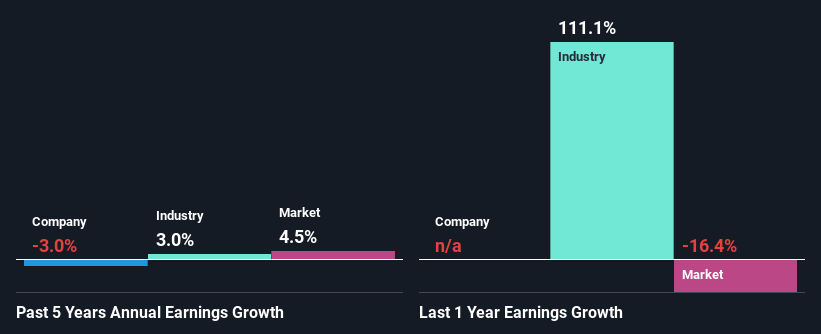Air New Zealand Limited's (NZSE:AIR) Fundamentals Look Pretty Strong: Could The Market Be Wrong About The Stock?
Air New Zealand (NZSE:AIR) has had a rough three months with its share price down 6.2%. However, stock prices are usually driven by a company’s financials over the long term, which in this case look pretty respectable. In this article, we decided to focus on Air New Zealand's ROE.
Return on equity or ROE is a key measure used to assess how efficiently a company's management is utilizing the company's capital. Simply put, it is used to assess the profitability of a company in relation to its equity capital.
Check out our latest analysis for Air New Zealand
How Is ROE Calculated?
Return on equity can be calculated by using the formula:
Return on Equity = Net Profit (from continuing operations) ÷ Shareholders' Equity
So, based on the above formula, the ROE for Air New Zealand is:
16% = NZ$328m ÷ NZ$2.0b (Based on the trailing twelve months to December 2023).
The 'return' is the profit over the last twelve months. That means that for every NZ$1 worth of shareholders' equity, the company generated NZ$0.16 in profit.
What Has ROE Got To Do With Earnings Growth?
So far, we've learned that ROE is a measure of a company's profitability. Based on how much of its profits the company chooses to reinvest or "retain", we are then able to evaluate a company's future ability to generate profits. Assuming everything else remains unchanged, the higher the ROE and profit retention, the higher the growth rate of a company compared to companies that don't necessarily bear these characteristics.
Air New Zealand's Earnings Growth And 16% ROE
To start with, Air New Zealand's ROE looks acceptable. Even when compared to the industry average of 18% the company's ROE looks quite decent. For this reason, Air New Zealand's five year net income decline of 3.0% raises the question as to why the decent ROE didn't translate into growth. So, there might be some other aspects that could explain this. Such as, the company pays out a huge portion of its earnings as dividends, or is faced with competitive pressures.
However, when we compared Air New Zealand's growth with the industry we found that while the company's earnings have been shrinking, the industry has seen an earnings growth of 3.0% in the same period. This is quite worrisome.
Earnings growth is a huge factor in stock valuation. The investor should try to establish if the expected growth or decline in earnings, whichever the case may be, is priced in. Doing so will help them establish if the stock's future looks promising or ominous. Has the market priced in the future outlook for AIR? You can find out in our latest intrinsic value infographic research report.
Is Air New Zealand Efficiently Re-investing Its Profits?
When we piece together Air New Zealand's low three-year median payout ratio of 15% (where it is retaining 85% of its profits), calculated for the last three-year period, we are puzzled by the lack of growth. The low payout should mean that the company is retaining most of its earnings and consequently, should see some growth. So there might be other factors at play here which could potentially be hampering growth. For instance, the business has faced some headwinds.
Additionally, Air New Zealand has paid dividends over a period of at least ten years, which means that the company's management is determined to pay dividends even if it means little to no earnings growth. Our latest analyst data shows that the future payout ratio of the company is expected to rise to 57% over the next three years. Therefore, the expected rise in the payout ratio explains why the company's ROE is expected to decline to 12% over the same period.
Summary
On the whole, we do feel that Air New Zealand has some positive attributes. However, given the high ROE and high profit retention, we would expect the company to be delivering strong earnings growth, but that isn't the case here. This suggests that there might be some external threat to the business, that's hampering its growth. That being so, the latest industry analyst forecasts show that the analysts are expecting to see a huge improvement in the company's earnings growth rate. To know more about the company's future earnings growth forecasts take a look at this free report on analyst forecasts for the company to find out more.
Have feedback on this article? Concerned about the content? Get in touch with us directly. Alternatively, email editorial-team (at) simplywallst.com.
This article by Simply Wall St is general in nature. We provide commentary based on historical data and analyst forecasts only using an unbiased methodology and our articles are not intended to be financial advice. It does not constitute a recommendation to buy or sell any stock, and does not take account of your objectives, or your financial situation. We aim to bring you long-term focused analysis driven by fundamental data. Note that our analysis may not factor in the latest price-sensitive company announcements or qualitative material. Simply Wall St has no position in any stocks mentioned.

 Yahoo Finance
Yahoo Finance 
